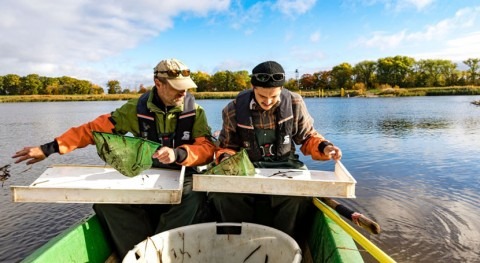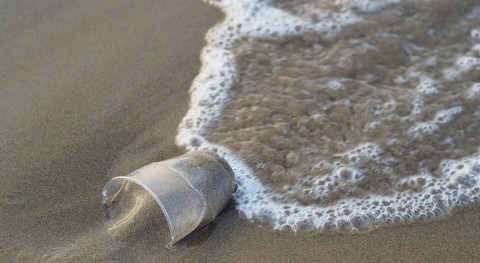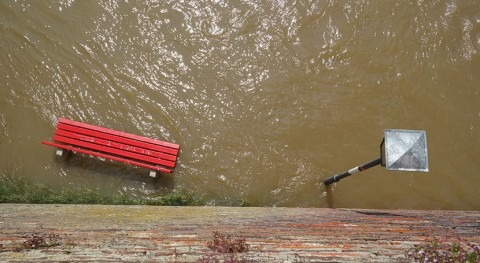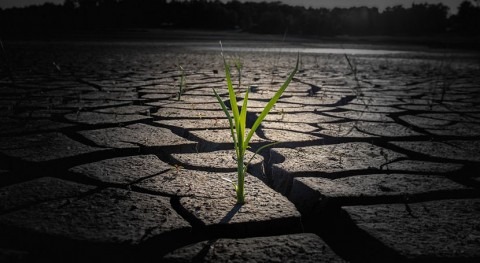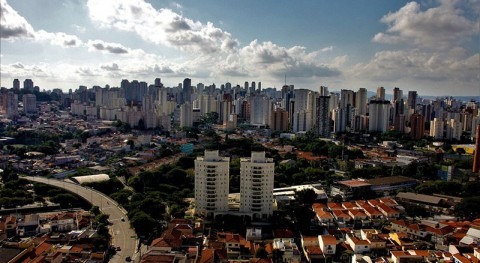A book by Stockholm Environment Institute (SEI) and the United Nations Environment Programme (UNEP), launched on last week's World Water Day, reports that the sanitation waste of 50% of the global population is still disposed of without having been treated – posing enormous risks to both public health and the environment.
At the same time, this disposal means opportunities are being flushed away; instead, this waste could be used to provide more than 50 million tons of fertilizer nutrient, which would account for 25% of the current global demand.
“We need to reevaluate our view on wastewater and human excreta. Today’s approach to disposal means lost opportunities in the form of nutrients and organic matter which are being flushed away,” says Kim Andersson, Senior Expert at the Stockholm Environment Institute and one of the lead authors of Sanitation, Wastewater Management and Sustainability: From Waste Disposal to Resource Recovery. “Instead, we could use these materials to improve soils or produce clean burning, low carbon biogas. If cleaned properly, wastewater can even be turned into drinking water. Reusing this resource will generate new jobs and business models.”
The second edition of Sanitation, Wastewater Management and Sustainability: From Waste Disposal to Resource Recovery aims to bring about change by showing how improved sanitation and wastewater management can benefit both humans and the environment. The book looks beyond human health, marine environment protection and resource recovery to the many other ways that sustainable sanitation and wastewater systems can contribute to meeting the social, environmental and economic goals of the 2030 Agenda for Sustainable Development. It highlights job opportunities along the entire sanitation and wastewater value chain of the circular economy, as well as potential gains for education, economic productivity and gender equality.
In 1990, around half of the global population did not have access to basic sanitation; by 2017, this number had been reduced to 26%
Important progress has been made in the last few years when it comes to increasing people’s access to basic sanitation. In 1990, around half of the global population did not have access to basic sanitation; by 2017, this number had been reduced to 26%. Current trends, including predicted population growth and the increasingly intensive consumption of natural resources, will continue to expand the need for improved excreta and wastewater management. At the same time, the challenges remain massive:
- About 2 billion people still lack basic sanitation. Out of this number, 670 million practice open defecation.
- Nearly 700 million children do not have access to sanitation facilities in their schools.
“I hope the book will find its way to new audiences and inspire and provide guidance on how to work towards more sustainable sanitation and wastewater management. There is great potential for resource efficiency and recovery linked to sanitation waste streams. Most circular economy initiatives do not capitalize on this component today,” says Birguy Lamizana, Programme Management Officer in charge of wastewater at UNEP.
The book includes a section on the circular economy, since this is an area that has seen a boom in the adoption of policies and plans on regional, national and city levels. One example is the EU, which has launched a series of policies and action plans on the circular economy during the last 5 years.
In addition to the emerging circular economy approach, recent years have seen a stronger focus on business models linked to sanitation and wastewater management, especially from a resource recovery perspective. The book highlights some of the lessons learnt in this area.
Sanitation, Wastewater Management and Sustainability: From Waste Disposal to Resource Recovery is a joint effort, across a global network of researchers and practitioners, to collect successful approaches and experiences which represent diverse geographic and socioeconomic contexts, as well as multiple challenges and potential solutions. The book will be available in English and Spanish and provides guidance on how to work towards more sustainable sanitation and wastewater management.









